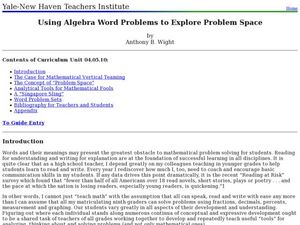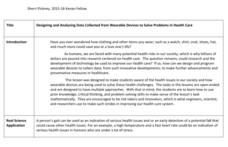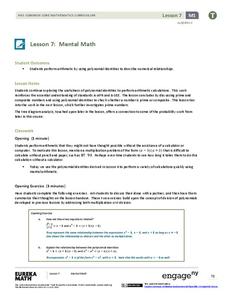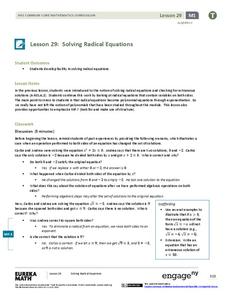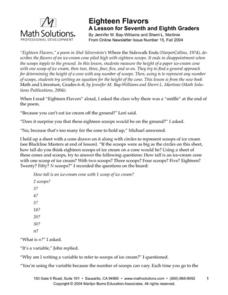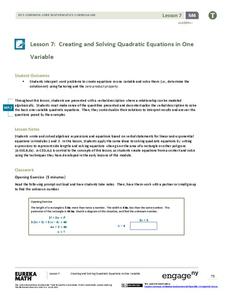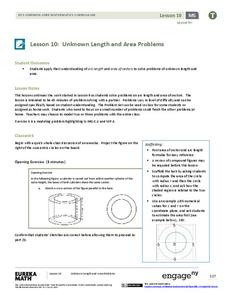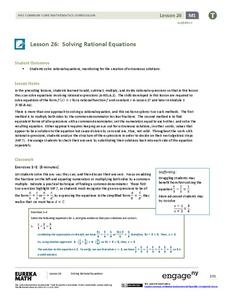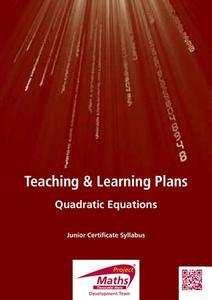Curated OER
Using Algebra to Explore Problem Space
Students apply their knowledge of math by rewriting word problems using equations. In this word problem lesson, students build upon previous knowledge as they set up the correct steps to solve word problems. This lesson is full of hints...
Curated OER
Summer Machines Activity: How Can We Move This Box of Blocks?
Learners discover there's more than one way to move a heavy load. In this problem solving lesson, students use observation and problem-solving skills as they experiment with simple machines in order to transport loads.
EngageNY
Word Problems Leading to Rational Equations
Show learners how to apply rational equations to the real world. Learners solve problems such as those involving averages and dilution. They write equations to model the situation and then solve them to answer the question —...
EngageNY
Solving Equations Involving Linear Transformations of the Coordinate Space
Explore methods for solving linear systems with your classes and introduce learners to using matrices as a viable method. Scholars are able to recognize situations where matrices are the efficient method of solving. Application...
Kenan Fellows
Designing and Analyzing Data Collected from Wearable Devices to Solve Problems in Health Care
Wearable devices have become more the norm than the exception. Learners analyze data from a sample device with a regression analysis in a helpful hands-on lesson. Their focus is to determine if there is a connection between temperature...
EngageNY
Applying Tangents
What does geometry have to do with depression? It's an angle of course! Learners apply the tangent ratio to problem solving questions by finding missing lengths. Problems include angles of elevation and angles of depression. Pupils make...
EngageNY
Operations with Numbers in Scientific Notation
Demonstrate the use of scientific notation within word problems. The lesson presents problems with large numbers best represented with scientific notation. Pupils use these numbers to solve the problems in the 11th installment in a...
EngageNY
Solving Basic One-Variable Quadratic Equations
Help pupils to determine whether using square roots is the method of choice when solving quadratic equations by presenting a lesson that begins with a dropped object example and asks for a solution. This introduction to solving by...
EngageNY
Mental Math
Faster than a speedy calculator! Show your classes how to use polynomial identities to multiply numbers quickly using mental math.
EngageNY
Solving Radical Equations
Learners solve complex radical equations. Solutions vary from one, two, and none, allowing pupils to gain experience solving a variety of problems.
EngageNY
Solving Equations with Radicals
Show learners how to develop a procedure for solving equations using radicals with the fifth lesson of the 25-part module that challenges learners to use properties to solve multi-step quadratic and cubic equations. Individuals round out...
Curated OER
Math Sleuths
Help learners practice their math skills by utilizing the Internet to research a mathematical topic. Your math sleuths will investigate a science or social studies topic from their curriculum and construct a Math Hunt Grid. They create a...
EngageNY
Ferris Wheels—Using Trigonometric Functions to Model Cyclical Behavior
Have class members going in circles as they model the path of a Ferris Wheel using trigonometric functions. Building on the previous lesson plan in this series on transformations, learners use trigonometric functions to model wheels...
National Security Agency
Are You Game? A Lesson Connecting Fractions and Probability
Exactly how fair are the board games children grow up playing? Young mathematicians investigate this questions as they work their way through this five-lesson series on basic probability.
North Carolina State University
Exploring Genetics Across the Middle School Science and Math Curricula
Where is a geneticist's favorite place to swim? A gene pool. Young geneticists complete hands-on activities, experiments, and real-world problem solving throughout the unit. With extra focus on dominant and recessive genes, Punnett...
Intel
Forensics: Get a Clue
Although the methods are all scientific, forensic science was started by police officers rather than scientists, who relied on observation and common sense. Young detectives use many tools to solve crimes around the school in a...
EngageNY
Why Are Vectors Useful? 1
How do vectors help make problem solving more efficient? Math scholars use vectors to represent different phenomenon and calculate resultant vectors to answer questions. Problems vary from modeling airplane motion to the path of a...
EngageNY
Applications of the Pythagorean Theorem
Examine the application of the Pythagorean Theorem in problem-solving questions. Pupils apply the theorem to find lengths when given different scenarios. They finish the 17th installment in an 18-part series by applying the theorem...
Marilyn Burns Education Associates
Eighteen Flavors
Your learners will be tantalized by this inquiry-based, collaborative activity as they discover how to write an equation that represents the height of an ice cream cone. Given the scenario based on the poem, "Eighteen Flavors," and...
EngageNY
Creating and Solving Quadratic Equations in One Variable
Give your classes practice at modeling using quadratic models with a resource that uses area and integer problems to allow individuals to create second degree polynomials. Young mathematicians solve equations using factoring and then...
Curated OER
Problem Solving Model
Use a vocabulary chart to introduce math functions. The class defines a list of mathematical vocabulary terms on a worksheet, as well as completes equations and expressions. They examine word problems and practice transcribing them into...
EngageNY
Unknown Length and Area Problems
What is an annulus? Pupils first learn about how to create an annulus, then consider how to find the area of such shapes. They then complete a problem set on arc length and areas of sectors.
EngageNY
Solving Rational Equations
What do fractions and rational expressions have in common? Everything! Learners use common denominators to solve rational equations. Problems advance from simple to more complex, allowing pupils to fully understand the material before...
Project Maths
Introduction to Quadratics
Develop conceptual knowledge of a quadratic equation and its solutions in your classes. The third algebra lesson in a series of four introduces learners to solving quadratic equations slowly. The first activity explores the zero product...
